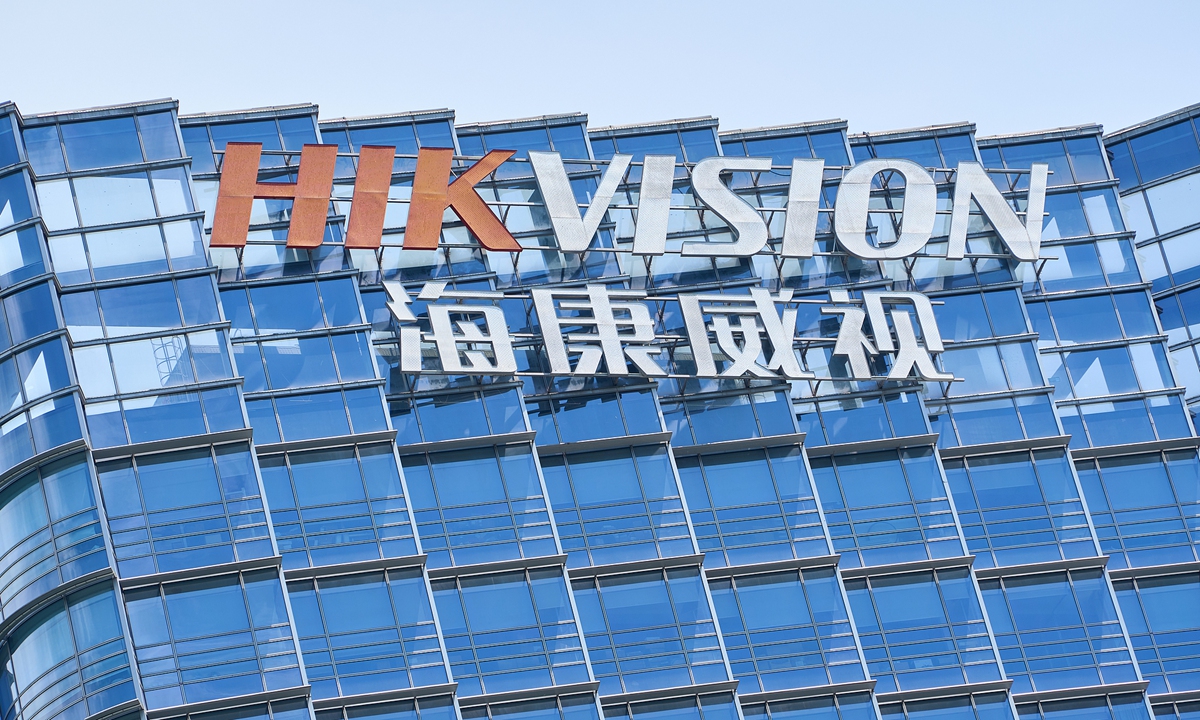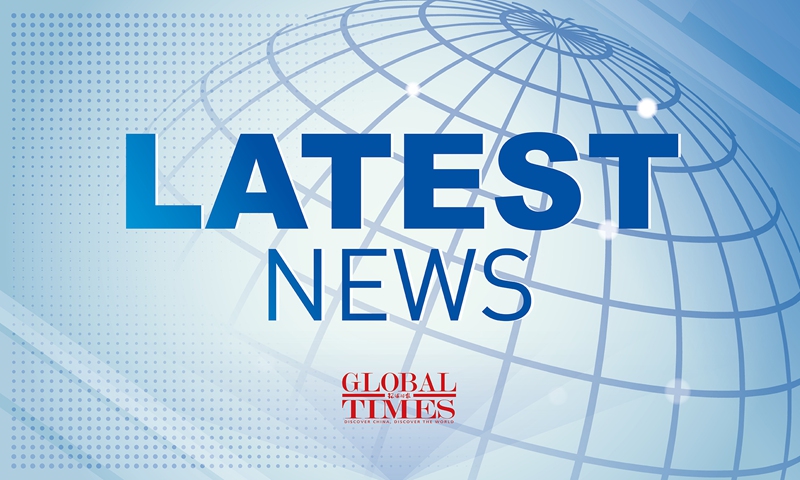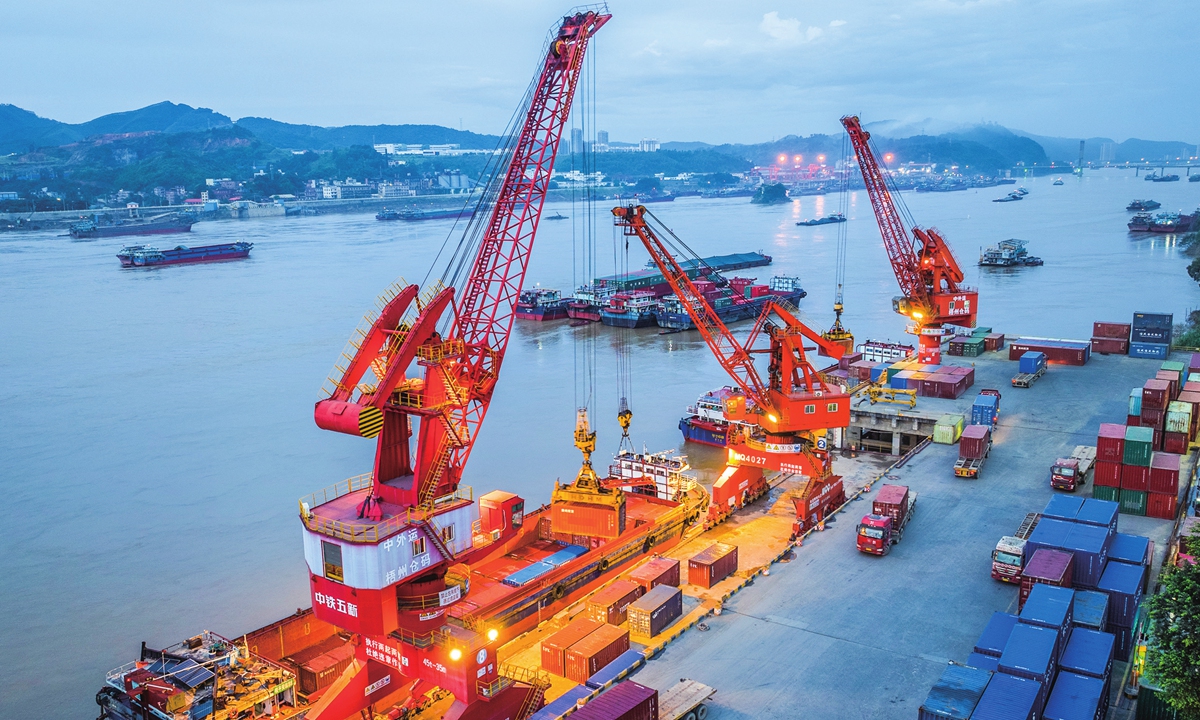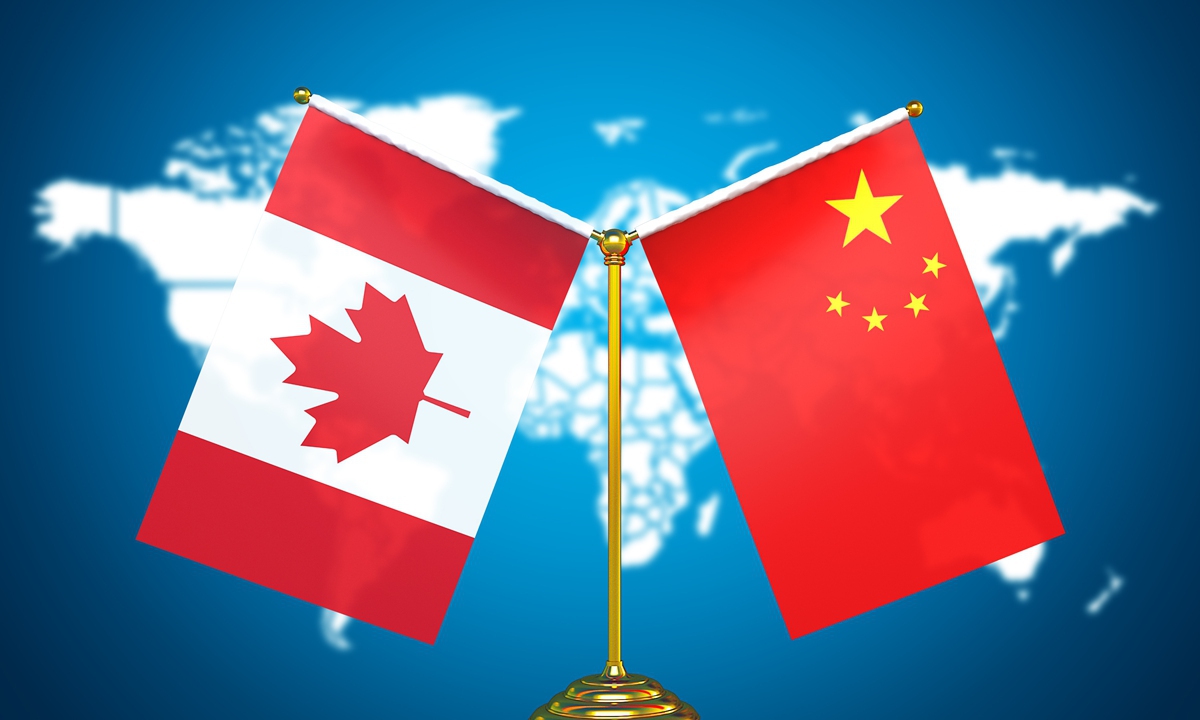Hikvision slams Canadian government over crackdown on its operations
Expert criticizes opaque move, which will hurt market fairness and business confidence

Photo: CFP
Chinese surveillance camera manufacturer Hikvision expressed strong opposition on Sunday against the Canadian government's order that required the company to cease operations in Canada over so-called national security concerns within 120 days.
The company told the Global Times via a statement that the Canadian government's move is allegedly based on a misinterpretation of China's National Security Law and National Intelligence Law and unjustly targets Hikvision due to the company's state-owned shareholding structure.
The Canadian government has ordered Hikvision to cease operations in Canada, citing so-called national security concerns, Industry Minister Melanie Joly said on Friday, according to a Reuters report.
"Without any evidence, Canada has groundlessly accused Hikvision's operations of potentially harming its national security and demanded the closure of our Canadian subsidiary. Such actions disregard facts, lack procedural fairness and transparency and amount to discrimination and suppression of a Chinese enterprise," the company stated.
Hikvision said that it has always adhered to business ethics, operated in full compliance with local laws and regulations and conducted its global operations lawfully. The company urged the Canadian government to uphold the rule of law and take a fact-based approach, fostering a fair, just and non-discriminatory environment for global businesses, rather than acting on speculation and prejudice.
Canada said last year it was reviewing an application to impose sanctions against Chinese security equipment companies, including Hikvision, after rights advocates alleged the firms were aiding repression and high-tech surveillance in Northwest China's Xinjiang Uygur Autonomous Region, according to a Wall Street Journal report.
The Canadian government claims that the company's operations threaten national security, but it has not identified the specific risks involved or provided any factual or analytical justification, said Zhou Mi, a senior researcher at the Chinese Academy of International Trade and Economic Cooperation.
Nor has it indicated whether these concerns could be addressed through corporate cooperation or technical solutions, and this lack of transparency suggests a high level of subjectivity and arbitrariness in enforcement, potentially undermining the broader market environment and eroding business confidence, Zhou told the Global Times on Sunday.
The Chinese Embassy in Canada expressed strong opposition to and deep dissatisfaction with the Canadian government's decision, urging it to immediately correct its wrongful move.
A spokesperson for the Chinese Embassy in Canada said on Saturday that the move has seriously undermines the legitimate rights and interests of Chinese enterprises and disrupts and undermines the normal economic and trade cooperation between China and Canada. China strongly deplores and firmly opposes this.
The Chinese government has always encouraged Chinese enterprises to conduct outbound foreign investment and cooperation in accordance with market principles and international rules and on the basis of compliance with local laws.
"We firmly oppose any wrongful practices of overstretching the concept of national security and abusing state power to discriminate against and suppress Chinese enterprises," the spokesperson said.
China urges the Canadian side to change course immediately, stop abusing national security and politicizing economic and trade issues, overstretching security concept, stop the unjustified suppression of Chinese enterprises, provide a fair, just and non-discriminatory environment for the normal operation of Chinese enterprises, and do more to promote the sound and stable development of China-Canada economic and trade cooperation. We will take all necessary measures to firmly safeguard the legitimate and lawful rights and interests of Chinese enterprises, the spokesperson said.
Some Western countries have previously imposed restrictions on Hikvision, some citing alleged "human rights concerns" as the excuse for varying degrees of pressure.
In 2022, a group of British politicians have called on the government to ban the sale and use of equipment from two Chinese security equipment manufacturer, including Hikvision, in the UK, with so-called excuses of "human rights violations in China," BBC reported.
Hikvision stated that some "fringe groups" demonized the company, emphasizing that the company respects human rights throughout its entire business operations, according to a company's statement.
"Surveillance equipment has consistently played a vital role in combating crime and terrorism in the UK, and Hikvision is proud of the role we have played in this effort," said the statement.
Canada's move against Hikvision closely mirrors previous sanctions imposed by the US and other countries on Chinese firms. Targeting specific companies raises concerns over potential ideological bias or politically motivated discrimination, and such actions are inherently unfair, according to Zhou. He added that even if some Canadian businesses may benefit in the short term, policy uncertainty and future disruptions remain likely. As such, the effectiveness of these sanctions is highly questionable.
Zhou warned that such actions would undoubtedly undermine market fairness. "Given Hikvision's strong competitiveness in the video surveillance sector, Canada's move raises concerns that it may be using so-called 'national security' as a pretext for trade protectionism aimed at excluding foreign competition."



